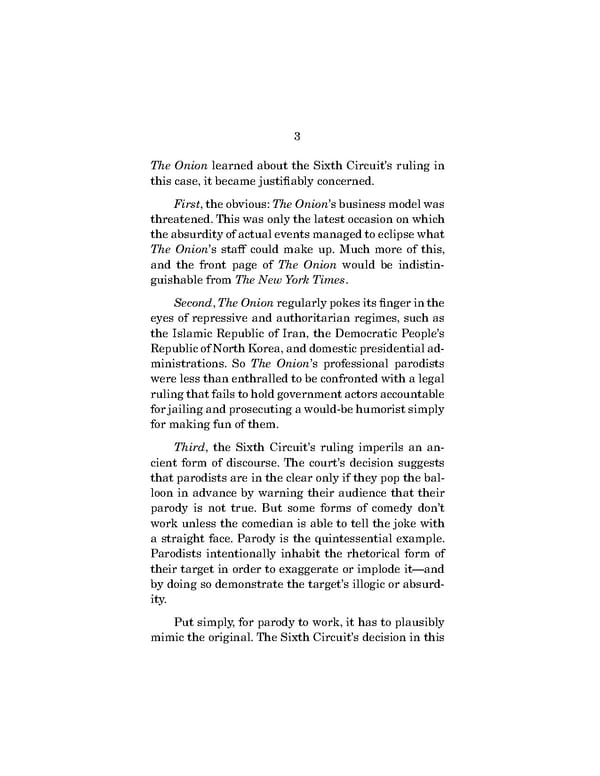3 The Onion learned about the Sixth Circuit’s ruling in this case, it became justifiably concerned. First, the obvious: The Onion’s business model was threatened. This was only the latest occasion on which the absurdity of actual events managed to eclipse what The Onion’s staff could make up. Much more of this, and the front page of The Onion would be indistin- guishable from The New York Times. Second, The Onion regularly pokes its finger in the eyes of repressive and authoritarian regimes, such as the Islamic Republic of Iran, the Democratic People’s Republic of North Korea, and domestic presidential ad- ministrations. So The Onion’s professional parodists were less than enthralled to be confronted with a legal ruling that fails to hold government actors accountable for jailing and prosecuting a would-be humorist simply for making fun of them. Third, the Sixth Circuit’s ruling imperils an an- cient form of discourse. The court’s decision suggests that parodists are in the clear only if they pop the bal- loon in advance by warning their audience that their parody is not true. But some forms of comedy don’t work unless the comedian is able to tell the joke with a straight face. Parody is the quintessential example. Parodists intentionally inhabit the rhetorical form of their target in order to exaggerate or implode it—and by doing so demonstrate the target’s illogic or absurd- ity. Put simply, for parody to work, it has to plausibly mimic the original. The Sixth Circuit’s decision in this
 Onion - Legal Case for Parody Page 7 Page 9
Onion - Legal Case for Parody Page 7 Page 9